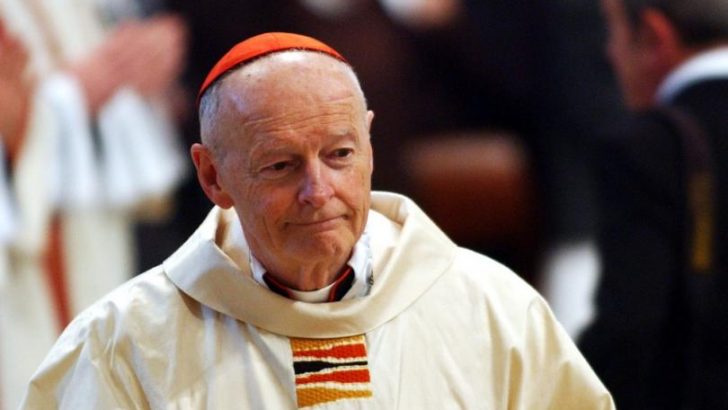What do you do during a desert time, when confidence in leadership has disappeared, trust in an institution of established record has collapsed, anger is on the ascendant, recriminations are flying about unmoored, chaos is a partner of the times?
One might think I am talking about the ever-roiling political reality in the United States, the confounding of truth with fiction in political discourse, the coarsening of the national sensibility, the riven landscape.
But I am not. Or at least I am not this time.
I am talking about the parlous state of the American Catholic Church as it struggles to get out of its mire of scandal, disbelief, polarisation, and rising fury.
Retired prelate, Theodore Cardinal McCarrick’s disgrace (reminiscent of Edinburgh’s Keith Cardinal O’Brien’s fall from grace because of his sexual improprieties with numerous seminarians and indeed earlier of Vienna’s Hermann Cardinal Groer’s countless allegations of abuse), coupled with the release of Pennsylvania’s Grand Jury Report with its damning indictment of hundreds of priests for their crimes of sexual abuse, has created a hitherto new level of disappointment and righteous anger around hierarchical leadership in the country.
Demands
It is not the first time US Catholics have been outraged and motivated to respond with aggressive demands for accountability, remorse, and structural change.
Scandals in Louisiana, Massachusetts, New York, and elsewhere began to erupt in the 1980s, mushroomed in the 1990s and the early part of the 21st Century, resulting in the Dallas Protocols created by the bishops to reign in errant priests, and in some measure of transparency on all matters of abuse by clerical personnel.
But the film Spotlight re-awakened the nation with a vengeance to the enormity of the Church’s moral failure, legalistic wrangling, reputational obsession, and discredited episcopal leadership.
Most American Catholics, wherever they stand on the ecclesiastical spectrum, were horrified by Pope John Paul II’s spiriting away of the Boston Archbishop, Bernard Cardinal Law, to a plushy sinecure in Rome leaving his successor to commence the healing.
And there have been sporadic calls for investigations into actual or perceived episcopal cover-ups culminating, as in the case of the Bishop of Kansas City, in resignation.
But with the latest exposures, the bishops themselves are scrambling to find a moral centre, offering a measure of a hope in a darkening landscape, going beyond boilerplate expressions of remorse, extending pastoral sympathy to their respective communities, eschewing silence, struggling to be publicly credible.
But it will be a long haul. Their credibility is shattered.
It is time for a new and bold leadership and that is likely to come from the laity. Setting up commissions of investigation and inquiry is fine – though their track record of success is minimal (look at Pope Francis’s own highly fraught Pontifical Commission on the Safeguarding of Children and Vulnerable Adults, even though re-constituted of late and charged with new energy, it has to deal with the legacy of high-profiled resignations), and you can see that is not the answer.
Nothing short of a wide scale re-consideration of the efficaciousness of current training for priestly ministry is required. Immediately. No spindoctoring, vapid rationalisations and focused commitment to superficial renewal will work.
The formation programme for priesthood needs a massive revamping; the disestablishment of the male enclave that defines current training is way past its best use date; and the strange and enduring belief in some kind of ontological differentiation around calling and ministry needs to be put to bed – permanently.
Henri Nouwen, the most influential Roman Catholic spiritual writer since the death of Thomas Merton in 1968, a priest of exemplary standing and a prolific writer and giver of retreats, long argued that the lack of training in spirituality and intimacy for priests-in-the-making has contributed to a truncating of their ministry.
And he meant by intimacy a capacity for affective relating that speaks to the maturing emotional dimension of the priest’s human flourishing.
Priesthood is too precious a gift to squander; freeing it from clericalism is a moral and spiritual imperative. Most in leadership know this but the traction necessary for such reform is still missing.
Why are we so fearful?


 Cardinal Theodore McCarrick
Cardinal Theodore McCarrick 